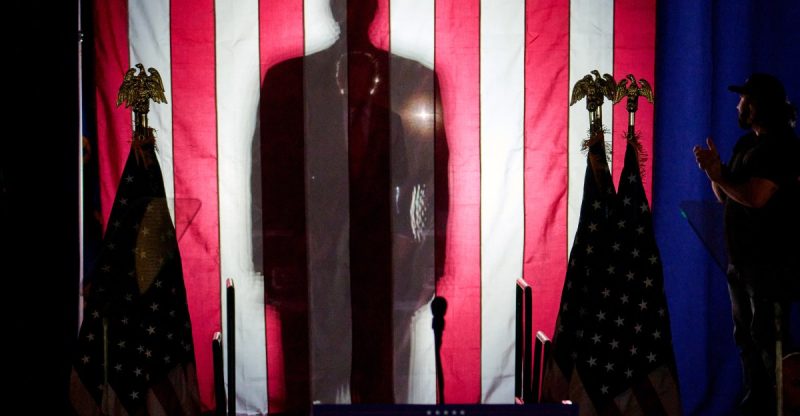
For years, a bitter foreign policy debate has raged within the Republican Party. On one side are the hawks, advocating for assertive US global dominance. On the other, the ‘America First’ crowd champions withdrawal from international commitments. President Trump’s position, however, remains frustratingly elusive, defying easy categorization.
His early response to the Israel-Iran war initially seemed to favor the hawks. A swift shift in support following the Israeli offensive, coupled with public attacks on Tucker Carlson for criticizing the conflict, suggested a clear stance. Yet, this perception is misleading. Trump’s foreign policy isn’t driven by a coherent ideology, but rather by a series of impulsive instincts.
These instincts prioritize self-interest, disregard for international norms, aggressive force projection without concern for civilian casualties, and the pursuit of advantageous ‘deals’ that benefit the US and, importantly, Trump himself. This approach resembles a globalized version of his New York real estate tactics of decades past.
This isn’t a new observation; Trump’s inconsistent foreign policy has been evident since his 2016 campaign and throughout his first term. His lack of a fixed ideology, however, doesn’t mean he’s easily swayed; it creates volatility. He vacillates between interventionism and isolationism depending on his immediate impulses and who he’s recently spoken to.
This inherent unpredictability, amplified by the near-dictatorial power modern presidents wield over foreign policy, leads to a deeply incoherent and self-contradictory approach. This is far more dangerous than ideological rigidity; it’s a recipe for disaster, particularly given the current geopolitical climate and the hawkish voices urging further military intervention in the Middle East.
Foreign policy analysts often discuss ‘grand strategy,’ a vision outlining objectives and the policies to achieve them. Both the hawks and the ‘America First’ group have distinct visions. The hawks believe in maintaining US global dominance, while the ‘America First’ crowd prioritizes domestic security through reduced international involvement. Trump’s policies, however, defy this clear categorization.
His approach to Iran, China, and Ukraine demonstrates this inconsistency. His Iran policy, for example, swung from negotiating a nuclear deal to supporting Israel’s war. His China policy similarly lacks coherence, vacillating between tariffs and negotiated compromises. His Ukraine policy is a chaotic mix of reduced aid and continued sanctions. There’s no unifying vision, only a series of reactive decisions.
This erratic behavior stems from Trump’s aversion to foreign policy doctrine. Whether this is viewed as pragmatism or ignorance is debatable, but the evidence—such as his reported refusal to read briefing documents—strongly suggests the latter. His actions are guided by instincts related to self-interest, deal-making, and displays of strength.
His zero-sum view of international relations, indifference to legal constraints, willingness to use force aggressively, and faith in his deal-making abilities frequently clash, leading to unpredictable shifts. His approach to Iran perfectly illustrates this: after initially warning Israel against attacking Iran, he enthusiastically embraced the conflict, even considering US military involvement.
This isn’t a strategic shift; it’s a reflection of his impulsive nature. He initially sought a deal, but when negotiations faltered, he opted for war, then attempted to frame this as a necessary step for a swift resolution. It’s a category error to align him with either GOP faction; he’s simply Trump, driven by his own unpredictable instincts.
The internal GOP disagreements are significant because they influence Trump. While he has fixed views, he’s easily swayed in areas where his opinions are less firm. In his first term, this was somewhat stabilized by establishment figures who often moderated his more radical impulses. However, his second term sees this replaced by internal MAGA factions vying for his favor, none of whom value stability.
This results in a continuous struggle for influence, with each faction attempting to align Trump’s actions with their interpretation of his vision. The problem is, no such unified vision exists. The resulting policy will inevitably be chaotic and contradictory, mirroring the inconsistencies of his early foreign policy.
Modern presidents possess immense power over foreign policy, largely unchecked by constitutional constraints. This leaves Trump’s foreign policy decisions vulnerable to his own whims and the machinations of his advisors. The consequences are already evident, and there’s little reason to expect change as long as he remains in office. American foreign policy, under Trump, is not guided by strategists or ideologues, but by the unstable impulses of one man.
Political scientist Elizabeth Saunders aptly compares this to a personalist dictatorship, characterized by erratic decisions and self-defeating policies. As long as Trump remains in power, this pattern will likely continue, leaving American foreign policy at the mercy of his unpredictable instincts.










